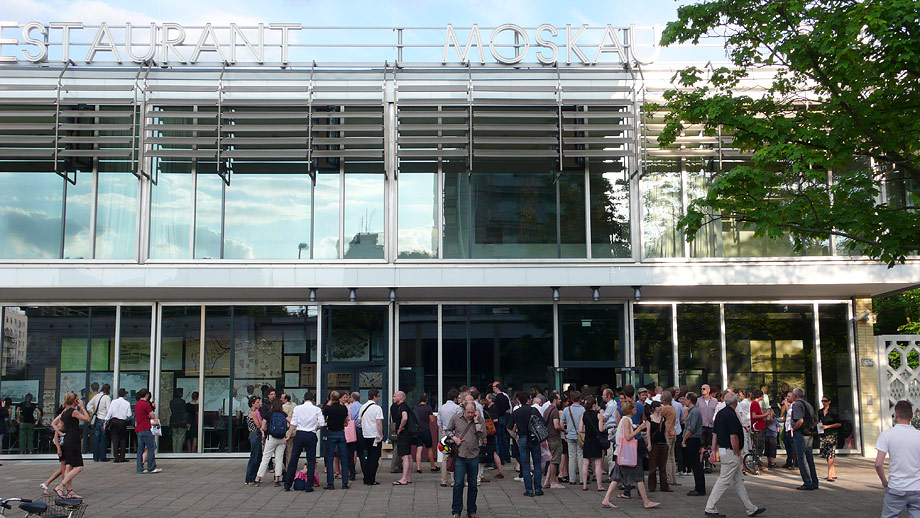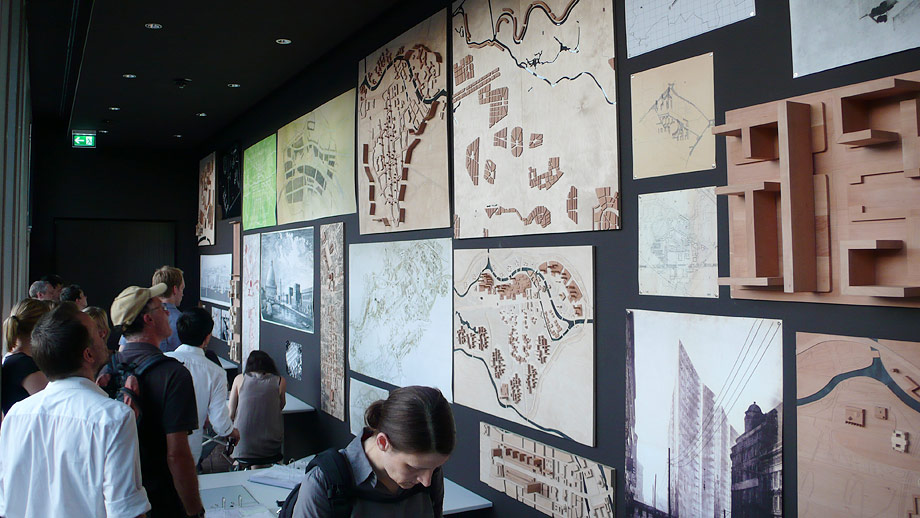A Grossly Indecent Display of Urban Planning
This article was started, re-started and re-started again, several times, in mid July, but was never finished due to crushing work deadlines and my pending wedding, which was – it goes without saying – infinitely more important than another speculative digression on SLAB. In fact, it should probably never have been started in the first place: that would have been the sane thing to do under the circumstances. But for some reason, for seven days running, I kept on finding two or three minutes of quality editorial time just before midnight, shortly before my eyes clamped shut through exhaustion, so I persevered, foolhardily, until time just ran out. Now everything thing here is dreadful Old News, but probably worth posting even if only for the Tati-esque film material included, sans commentaire, at the end. Returning to the carcass of an unfinished story is never pretty, put let’s just pretend there’s a smattering of ectoplasmic life in the old zombie, and read on ”¦

Last Thursday The other Thursday evening Many, many weeks ago one Thursday evening, just as the sun was doing its low-down, big and golden thing (casting shadows right down Karl-Marx Allee) I headed over to Café Moskau for the opening of the exhibition Das ungebaute Berlin, or “Unbuilt Berlin”.
If you’ve ever needed a good reason not to trust the Architect as Master Planer, then this is surely the place to find one. It is also great a reminder of just how weird the 20th century was: a one-hundred-year spasm where the world lurched from one dismal utopia to the next. The reproduction drawings and bespoke models which make up the bulk of this exhibition document some of the more wacko building proposals for Berlin, each one – from the 1920s to the 1990s – an expression of the prevailing political ideal.
I can’t recall if the projects were shown in chronological order or not, but interesting juxtapositions were achieved all the same. Hitler and Speer’s gargantuan Germania project from 1941, is thus shown in close proximity to entries from the International Ideas Competition for the Capital of 1957/58 (Internationaler städtebaulicher Ideenwettbewerb 1957/58). Not to be confused with the Interbau competition of 1957, which actually sought to rebuild the Hansaviertel area of West Berlin, the Ideas Competition was a pure propaganda exercise. It was held at a time when East Berlin – for seven years the capital of the GDR – was putting the finishing touches to its own prestige project, the Stalinalle. Competition guidelines, however, actively encouraged participants to elaborate on the Western fantasy that central (Eastern) Berlin was a tabula rasa, and gave participants free-reign in planning the “City of Tomorrow”.
Danish architect Jørn Utzon’s proposal remodeled downtown Berlin as a broad pasture interspersed by what can only be described as “nests” of tower blocks. Utzon will be better remembered for building the Sydney Opera House, which makes it difficult to write him off as a complete crack-pot, but whatever herbs he was smoking, Le Corbusier was sucking away on them too ”¦
The article ends abrubtly here at a difficult crossroads for the author: wade forward, researching the fuck out of everything, or just ramble on for seven more paragraphs and use enough adjectives to prevent the reader from noticing that there is no real clear hypothesis to the whole affair. And now, that film.
Hold on, before we get to the film, how about a quote concerning the nature of utopias by the French author and essayist, Georg Perec, whose “Penser/Classer” I was reading throughout the month of July. That might round things off a bit, and give the whole shebang a breath of educated depth, for those readers looking for that kind of thing:
“All utopias are depressing because they leave no room for chance, for difference, for the ‘miscellaneous’. Everything has been set in order, and order reigns. Behind every utopia there is always some great taxonomic design: a place for each thing, and everything in its place.”
OK, but now let’s definitely get on with the film.
Fine.
